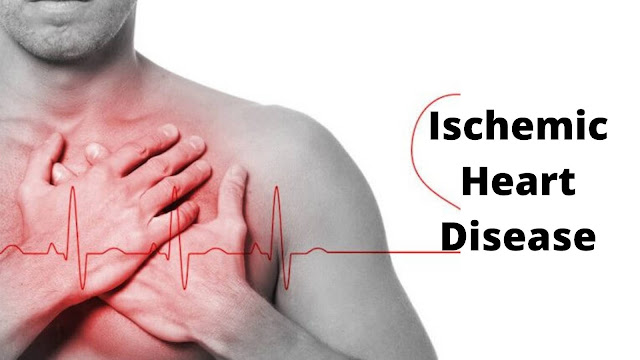Ischemic Heart Disease
Ischemic heart disease (IHD) refers to a collection of circumstances characterized by a reduced blood supply to the heart muscle due to tapering or blocked coronary thrombosis arteries. This reduction in blood flow divests the heart of oxygen and nutrients, leading to various symptoms and complications. Understanding the signs and symptoms of ischemic heart disease is crucial for early detection & effective management. Here's an in-depth exploration of these symptoms:
Chest Pain (Angina Pectoris): This is the hallmark
symptom of ischemic heart disease. Angina typically presents as a feeling of
pressure, tightness, squeezing, or heaviness in the chest. It often starts
behind the breastbone and whitethorn radiate to the left arm, shoulder joint,
jaw, or back. The pain might be triggered by physical exertion, stress, or
heavy meals and usually subsides with rest or medications like nitroglycerin.
Shortness of Breath (Dyspnea): Individuals with
ischemic heart disease might experience difficulty breathing, especially during
physical activity or when lying flat. This occurs due to the heart's reduced
ability to pump blood efficiently, leading to fluid accumulation in the lungs.
Fatigue: Feeling excessively tired or lacking energy
is common among people with IHD. The heart muscle's compromised function
affects the body's overall ability to meet its demands, resulting in fatigue
and weakness.
Heart Palpitations: Irregular heartbeats, a sensation
of rapid, fluttering, or pounding heartbeats (palpitations), can occur. These
irregularities might be due to the heart's response to decreased blood flow or
changes in heart rhythm caused by ischemia.
Dizziness or Lightheadedness: Abridged blood flow to
the brain can cause dizziness, faintness, or a feeling of being lightheaded.
This symptom may be more pronounced during physical exertion or sudden changes
in position.
Nausea and Indigestion: Some individuals might
experience feelings of nausea, indigestion, or abdominal discomfort, which
could be mistaken for digestive issues. These symptoms can occur due to reduced
blood flow affecting the digestive organs.
Sweating: Unexplained sweating, particularly cold
sweats, can occur in people with IHD, often accompanying other symptoms like
chest pain or shortness of breath.
Pain in Other Body Parts: Ischemic heart disease can
sometimes cause discomfort or pain in areas other than the chest, such as the
neck, jaw, shoulder, or upper abdomen. These pains might occur in conjunction
with or independent of chest pain.
Silent Ischemia: In some cases, individuals with IHD
might experience no symptoms or only mild discomfort, a condition known as
silent ischemia. This lack of symptoms increases the risk of delayed diagnosis
and can lead to severe complications.
It's important to note that the severity and combination of
symptoms can vary widely among persons. Some might experience only mild
discomfort, while others may face severe, life-threatening complications such
as heart attacks or arrhythmias.
Early detection through regular check-ups, monitoring risk
factors (like high blood pressure, cholesterol levels, diabetes, and smoking),
and adopting a heart-healthy lifestyle can significantly reduce the progression
and impact of ischemic heart disease. Seeking immediate medical attention upon
experiencing any concerning symptoms is crucial for timely diagnosis & appropriate
management to prevent further complications.




Comments
Post a Comment